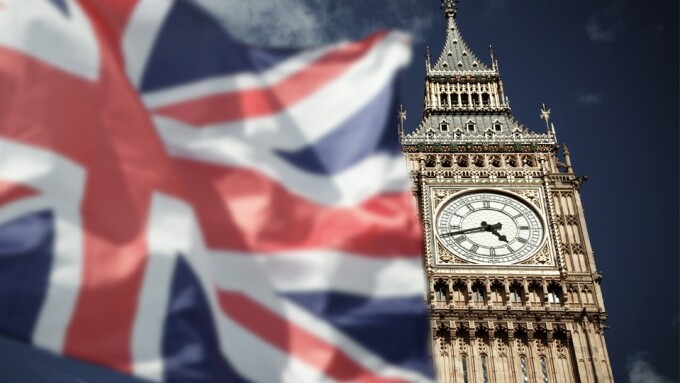The April 2018 goal to disallow under-18s from accessing porn was announced yesterday as the country’s digital minister, MP Matt Hancock, signed the commencement order for the Digital Economy Act.
The age check applies to any online platform, accessed on desktop or mobile, that provides hardcore adult entertainment on a commercial basis to those in the U.K.
The act allows a U.K. regulator to fine businesses that refuse to comply, force ISPs to block content it deems obscene and order third-party payment services to withdraw billing support
Despite that the proposal has been discussed and debated for several years, the U.K. has yet to appoint an official regulator.
While fingers have pointed to the British Board of Film Classification (BBFC) to assume the role, a spokesman told the BBC that the appointment would not be formalized until the fall.
Some opponents of the Digital Economy Act’s porn provisions say that age verification likely will lead to porn companies building databases of the U.K.’s porn habits, which could be vulnerable to hacks.
Jim Killock, the executive director of the Open Rights Group, told The Guardian that the government has repeatedly refused to ensure that there is a legal duty for age verification providers to protect the privacy of web users.
“There is also nothing to ensure a free and fair market for age verification,” Killock said. Larger adult entertainment companies “would then decide what privacy risks or profiling take place for the vast majority of U.K. citizens.”
Jerry Barnett, founder of the Sex & Censorship campaign, told XBIZ that the Digital Economy Act is the culmination of years of lobbying by a wide variety of state and private interests, including large adult industry businesses.
“[It] will fundamentally change the internet in the U.K. and possibly globally. For the first time, the government has the power to block websites, en masse, without court orders. This is a first in a democracy,” Barnett said.
“Although this appears to be just about protecting children from porn, it isn't. It will block any site that doesn't comply with strict U.K. content rules. Any nude image at all risks being categorized as porn, and the entire site being blocked. Current filtering systems class up to 4 million websites as sexual.
“It's likely this regime will block the vast majority of these. And doubtless, the censorship regime will then be extended to other crimes against decency.
“Although much attention has been paid to the very dangerous Snoopers Charter (also known as the Investigatory Powers Act of 2016). This law is at least as dangerous and has had far less attention.”







